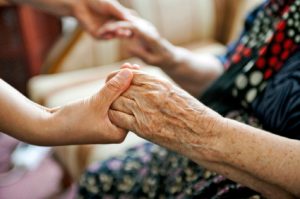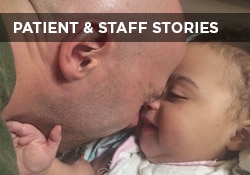This website uses cookies so that we can provide you with the best user experience possible. Cookie information is stored in your browser and performs functions such as recognising you when you return to our website and helping our team to understand which sections of the website you find most interesting and useful.

Susan E. Mazer, Ph.D. Blog
Thoughts and ideas on healthcare
Hi, and welcome to my blog! I'm Susan E. Mazer -- a knowledge expert and thought leader on how the environment of care impacts the patient experience. Topics I write about include safety, satisfaction, hospital noise, nursing, care at the bedside, and much more.
Value of Loving Kindness in the Nurse-Patient Relationship
October 31, 2014
 At the Beryl Institute Roundtable in Seattle, WA, this week, kindness dominated discussions about caregiver resilience in pursuit of the optimal patient experience.
At the Beryl Institute Roundtable in Seattle, WA, this week, kindness dominated discussions about caregiver resilience in pursuit of the optimal patient experience.
While the discussion started by looking at the current pressures in healthcare settings, it quickly moved to human needs and values, the daily toll on nurses and others who care at the bedside, patient to patient, moment to moment.
Nurse Theorist, Jean Watson, Ph.D., provides clear and unambiguous guidance for nurses in her Caring Science model. And, she begins with loving-kindness as primary value defining the nurse-patient relationship.
Dr. Watson’s first Caritas Process states: “Practice equanimity and loving kindness to self and others.” She points to the value of authentic altruism to both the nurse and patient.
In this day of evidence-based practices and addiction to numbers and statistics, it’s easy to doubt the value of something so difficult to empirically define and quantify. However, without question, love has been discussed more than any other humanistic practice because of its universally positive effect on patients.
Love is a healing experience that impacts everyone. It is contagious in the best sense of the word. And, it lives beyond its expression.
Dean Ornish, M.D., the physician who developed the first evidence-based program for reversing heart disease, does a good job in explaining the critical need and effectiveness of love in healing. If you’re interested in learning more, listen to this interview with him on New American Health Talk Radio:
In discussing Altruism, Happiness, and Health, Stephen G. Post cites many studies that point out the benefits to the giver and receiver. What is clear is that practicing equanimity and loving kindness, as Dr. Watson offers, is beneficial as it completes the healing circle between nurse and patient.
Nonetheless, while questions about respect and communication dominate HCAHPS, the therapeutic presence of the nurse is ignored. Actually, HCAHPS does not address the relational context of care outside of respect. And loving kindness is a step above the bottom line of respect with compassion and empathy being as important.
From Dr. Watson:
“Humanistic, altruistic value system … comes to life when one cultivates the ongoing practice of Loving-Kindness and Equanimity, a form of cultivated mindfulness awareness/meditation, a practice that opens and awakens the compassionate, forgiving love of the heart center.”
Why would we do less?
P.S. If you like this post, please do me a favor and share on LinkedIn, Twitter, Facebook, etc. Also to get automatic notices when a new post is published, subscribe (upper right). No spam – just great content. Thanks!










